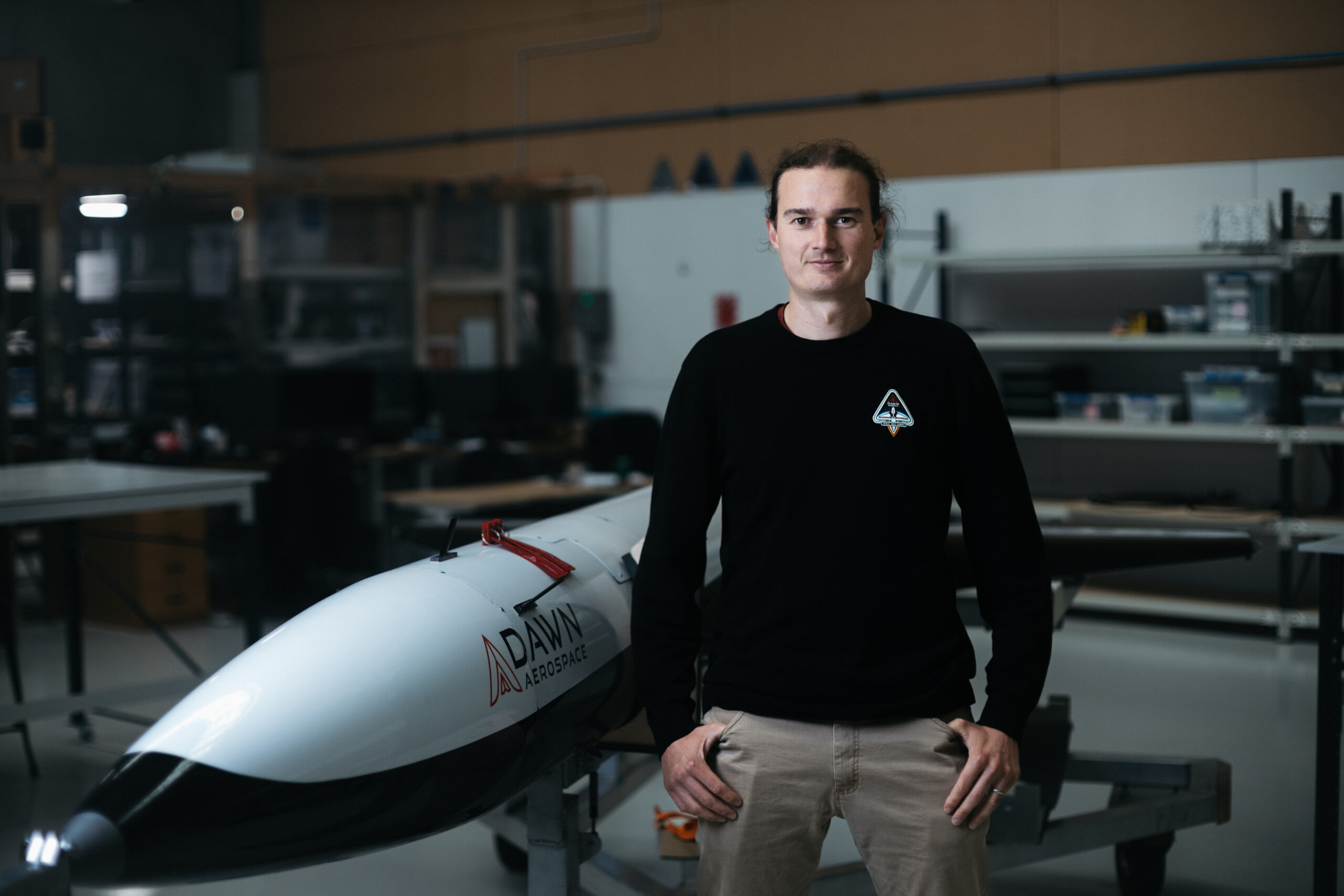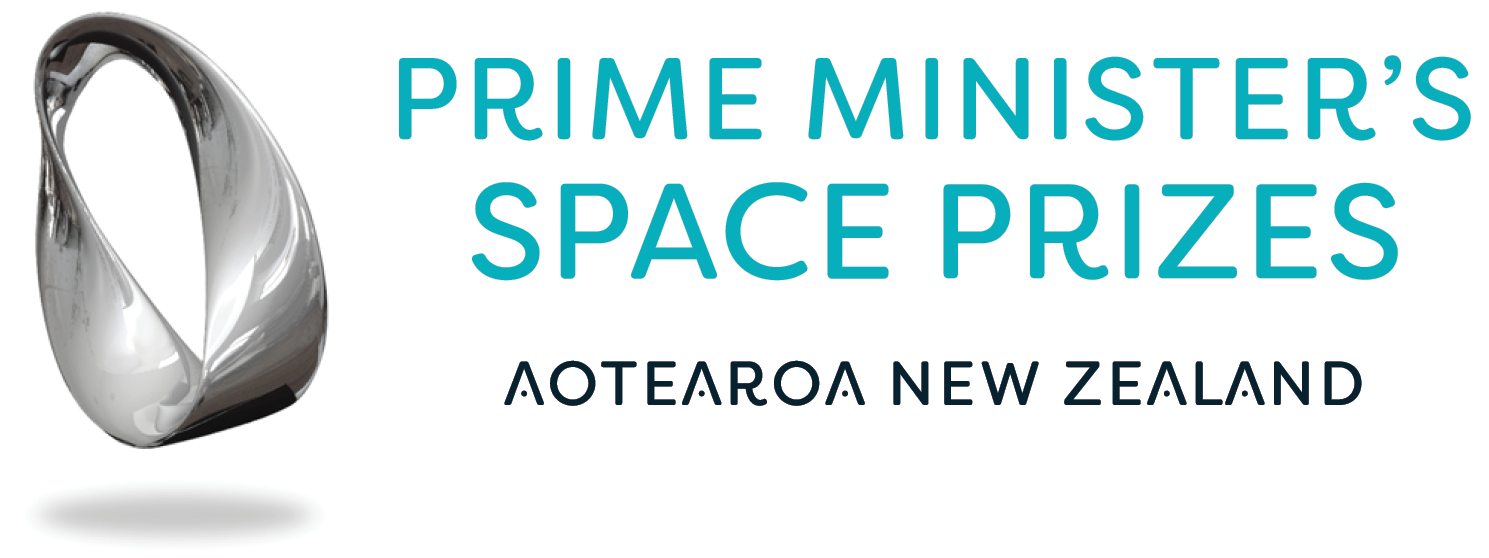2025 Prime Minister’s Space Prize for Professional Excellence

Rocket scientist and inventor wins Prime Minister’s Space Prize
Stefan Powell, the Co-Founder and CEO of Dawn Aerospace, has been awarded the Prime Minister’s Space Prize for Professional Excellence, which comes with a prize of NZ$100,000.
Dawn Aerospace manufactures and exports sustainable propulsion systems used on more than 40 satellites, and is developing the supersonic Aurora spaceplane – the world’s first reusable spacecraft. The company has achieved contracts exceeding NZ$100 million, creating high-value jobs for highly skilled engineers, driving economic growth, and reinforcing New Zealand’s reputation as a serious player in commercial space transportation.
The company’s green propellant technology reduces environmental hazards traditionally associated with hydrazine fuels, while its reusable launch platform promises to dramatically lower launch costs and emissions.
After finishing school in Hamilton, Stefan attended Delft University of Technology in the Netherlands. He launched Dawn Aerospace with fellow TUDelft graduates, with the mission to build scalable and sustainable space transportation.
“We realised that there was this massive potential for space to deliver real value to people down on Earth, but the hundreds of thousands of satellites that we would need to actually realise that value wasn’t going to happen with the existing space infrastructure.”
Stefan explained that we already get broadband internet from space, and much of our knowledge about Earth, such as climate science and weather forecasting, comes from space data.
“But the next-generation stuff that people are just starting to talk about: data centres in space, asteroid mining, moon bases, eventually colonising the solar system. All these things are only going to happen if we can have much more scalable and sustainable ways of accessing space.”
“Our dream for the future is that Dawn Aerospace becomes the transportation infrastructure backbone of space. That’s getting to space, but also moving around in space.”
The first problem the company set out to solve was the use of toxic propellants in space.
They have reinvented satellite propulsion to use nitrous oxide and propylene, which are very safe and common propellants that are cost-effective for the new space economy, Stefan says.
“Replacing toxic hydrazine is a major step forward for allowing more sustainable, scalable propulsion in space, but the real revolution for in-space transportation is refuelling.”
“All these massive mobility problems of getting lots of stuff out to the moon and back become much easier when a satellite is no longer a single-use device.”
Stefan says it is rewarding to show their technology to customers and see them realise how it can improve their business.
“It’s incredibly exciting to see our satellite propulsion systems launch on a rocket being deployed to space, and seeing this amazing aircraft fly and then come back minutes later and roll down the taxiway and see the team start preparing it for the next flight.”
Rapid reusability of a rocket has been termed the “holy grail” of space transportation, Stefan says.
“Traditionally rockets are entirely expendable. They either burn up in the atmosphere or end up in the ocean. That’s fine when space is still a small industry. But the whole thesis, the whole point of Dawn Aerospace, is that space is going to become a massive industry. But how do we scale it up in a sustainable way?”
“The airline industry gives us a great model for that. If we can bring airline technology to spaceflight, we’ll find a much more scalable way to access space.”
Dawn Aerospace’s Mk-II Aurora is designed to be the first vehicle to fly to 100 km altitude, twice in a single day. “We sold an Aurora spaceplane to the state of Oklahoma for US$17m – the first time a reusable spacecraft has ever been sold,” Stefan said.
In awarding this prize, the judges said that Dawn Aerospace represents one of the most transformative developments in New Zealand’s aerospace story. They say that Stefan demonstrates excellent leadership and a strong vision that is allowing the company to achieve remarkable results that are international in scope. Generous with his time in supporting New Zealand’s aerospace ecosystem, Stefan can be justifiably proud of launching into space before he was 30-years-old, and getting an aircraft supersonic before he was 35-years-old! The panel also commended his commitment to environmental sustainability.
Stefan says his interest in engineering goes back to building things like go-karts in the shed with his dad and brother. “I’ve always been fascinated by building stuff. But what got me really hooked on space was just the immense, untapped value in space. We’re barely scratching the surface of how space can transform and improve life on Earth.”
Stefan says “space is very much a long-term game” and it will take more than 20 years to revolutionise the industry.
“In such a long-term industry, it’s really important that you have broad government support and it’s really exciting to see that we actually have that in New Zealand. The Space Prize is a great example of that and the Tāwhaki National Aerospace Centre is an amazing piece of infrastructure that the government has built together with the local rūnanga.”
Stefan says winning the prize has allowed him to take a step back and appreciate the achievements that the team at Dawn Aerospace has made.
“As engineers, we can be quite pessimistic – worried about risks and setting incredibly difficult goals that we never quite achieve on time or on budget. But the fact that we’ve gotten as far as we have is mesmerising to some people.”
“I’m really happy to be a part of an award like this because of the light it shines on space in general.”
“Space is an industry that can really improve the world. Hopefully we can show the younger generation that there is a great future, and build a pipeline of talent for companies like Dawn.”
